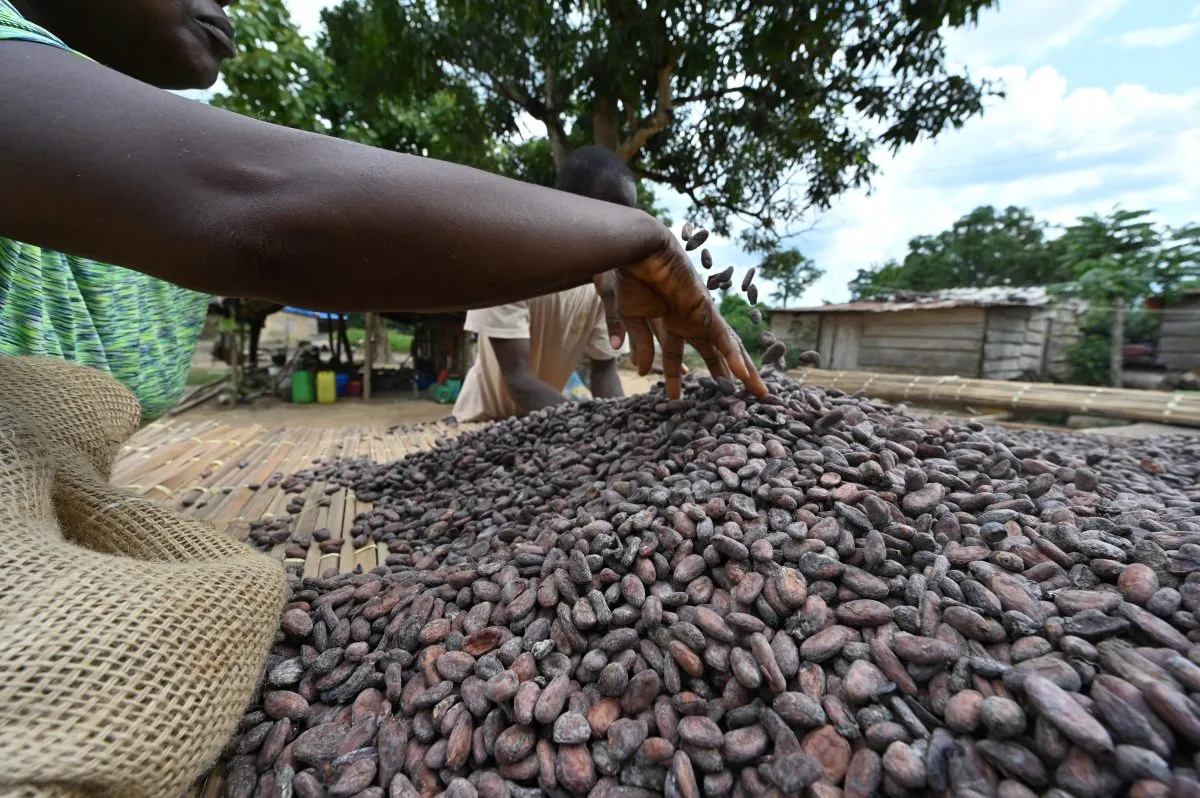Almost four decades after Nigeria dispensed with a cocoa-industry regulatory board in 1986, a new executive bill is working its way to the legislature to create a replacement. By the time it was scrapped, the cocoa marketing board, which fixed prices and regulated other industry practices, was so hated by farmers that it was seen as the primary obstacle to their progress.
Thirty-nine years later, the government is preparing for the launch of a new regulatory body. On 5 May agriculture minister Abubakar Kyari announced that President Bola Tinubu’s cabinet has approved a draft bill to create a National Cocoa Management Board that will have responsibility for regulating the industry, but without the power to fix prices.
“With this new framework, we will be competing directly with top global producers like Ghana and Côte d’Ivoire,” said Kyari.
For President Bola Tinubu’s government, this is a chance to boost the potential of an industry that has broken several price records in recent years, with prices rising 400% in three years to reach $12,000 per ton at point. The value of cocoa exports from Nigeria jumped more than sevenfold between 2023 and 2024 to 2.7 trillion naira ($1.7bn), driven by higher demand and naira depreciation. Cocoa thus offers Nigeria a viable opportunity to diversify away from faltering oil exports.
The Tinubu administration based its 2025 budget of 54.9 trillion naira on a daily oil output of 2.06m barrels of crude sold at $75 per barrel. While the year started with a January production of 1.53m barrels per day, it has remained below that number in the subsequent months, with prices closer to $60 a barrel. Thoughts are therefore turning to cocoa as a potential driver of export earnings.
Demands for better traceability
Though Nigerian cocoa farmers and the industry in general have enjoyed the freedom to set prices, Nigerian-origin cocoa has sometimes been sold at a discount due to quality inconsistency, an indicator of variable industry standards. But recent global developments demanding sustainable and ethical practices, particularly the introduction of the European Union Deforestation Regulation, made regulated standards a necessity.
The Regulation, passed by the European Parliament in 2023, requires all exporters of agricultural commodities to the EU to provide evidence that the crop is grown sustainably and is not causing deforestation. It requires that agricultural exports be traceable to where they are grown – and this requirement has made a regulator essential, according to Adeola Adegoke, president of the Cocoa Farmers Association of Nigeria. “The Nigerian cocoa industry cannot continue to be on autopilot,” said Adegoke. “There must be a deliberate plan to reposition it in order to regain the lost glory of the cocoa economy.” Nigeria slipped from its leadership in cocoa production as oil became the mainstay of the economy from the 1970s, and agricultural exports were sidelined by successive governments.
More support needed for farmers
In recent years, the trade has suffered from an absence of incentives and government support, especially in the years in which farmers were threatened by price volatility, said Adegoke. The major assignment of the board will be to fill that gap, he said.
The move toward a new board started with the establishment of the National Cocoa Management Committee in August 2022. Made up of industry stakeholders and officials of the agriculture ministry, its primary task was to devise measures for the revitalisation of cocoa as a major export commodity.
The committee identified significant challenges, such as difficulties in dealing with cocoa pests and diseases, a growing preponderance of ageing plantations and farmers, lack of finance and the absence of national regulation.
In the draft bill, the National Cocoa Management Committee will be converted into the National Cocoa Management Board to tackle the identified problems facing the industry.
High prices bring opportunities
The more than threefold increase in cocoa prices between 2023 and 2024 seems to have been a wake-up call for the government. Nigeria has ranked fifth in recent years among global cocoa producers, behind Côte d’Ivoire, Ghana, Ecuador and Cameroon. While the two top producers, Côte d’Ivoire and Ghana, suffered significant output shortfalls due to unfavourable weather, Nigeria, which had a better crop, lacked the output scale to make the most of the opportunity.
Still, the country produced more than 300,000 tons of the crop in the 2023-24 season. Some expect an even better harvest in the current season due to improved weather. The government is keen to capitalise on this.
Prices for cocoa futures have started retreating from their record levels, and were ranging between $7,844 and $8,415 per ton in March, according to a market assessment published on 11 April by the International Cocoa Organization (ICCO).
Weighing on the market were weakening demand and an expectation that most of the West African producers, who account for 70% of global production, will have a better season than the 2023-24 season. The current season is the first in three years in which the ICCO is expecting a production surplus. But it is unlikely to result in a wholesale reset of prices, given the vagaries of the supply chain.
Indeed, with hedge funds betting on cocoa futures and driving the record prices of recent years, younger people in Nigeria are beginning to see a future in cocoa farms. Some are establishing new farms and planting early-maturing varieties that yield pods within three years, according to officials at the Cocoa Association of Nigeria (CAN).
Yet, even while the government has been applauded for initiating the return of an industry board, some stakeholders have their misgivings.
Sayanna Riman, a cocoa farmer and a former president of the CAN, which groups farmers, buyers and processors, says that a board could lead to creeping government interference that ultimately may not be in the interest of farmers. What the industry needs, rather than an interfering body, Riman says, is more sensitivity to the challenges that farmers face and targeted support to help them make the most of the era of high prices. “What the cocoa industry needs is investments and more standardisation,” Riman concludes.
Want to continue reading? Subscribe today.
You've read all your free articles for this month! Subscribe now to enjoy full access to our content.
Digital Monthly
£8.00 / month
Receive full unlimited access to our articles, opinions, podcasts and more.
Digital Yearly
£70.00 / year
Our best value offer - save £26 and gain access to all of our digital content for an entire year!

 Sign in with Google
Sign in with Google 



